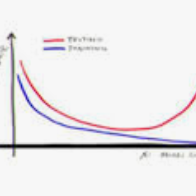Generalized Zero-Shot Learning (GZSL) recognizes unseen classes by transferring knowledge from the seen classes, depending on the inherent interactions between visual and semantic data. However, the discrepancy between well-prepared training data and unpredictable real-world test scenarios remains a significant challenge. This paper introduces a dual strategy to address the generalization gap. Firstly, we incorporate semantic information through an innovative encoder. This encoder effectively integrates class-specific semantic information by targeting the performance disparity, enhancing the produced features to enrich the semantic space for class-specific attributes. Secondly, we refine our generative capabilities using a novel compositional loss function. This approach generates discriminative classes, effectively classifying both seen and unseen classes. In addition, we extend the exploitation of the learned latent space by utilizing controlled semantic inputs, ensuring the robustness of the model in varying environments. This approach yields a model that outperforms the state-of-the-art models in terms of both generalization and diverse settings, notably without requiring hyperparameter tuning or domain-specific adaptations. We also propose a set of novel evaluation metrics to provide a more detailed assessment of the reliability and reproducibility of the results. The complete code is made available on https://github.com/william-heyden/SEER-ZeroShotLearning/.
翻译:暂无翻译




